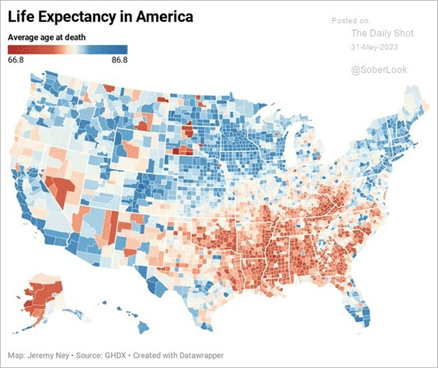
How happy are people around the world?
A comprehensive study on the subject, the World Happiness Report (WHR) is produced annually and measuring happiness around the world.
Below is a heatmap of happiness by country.

The 2024 edition of the WHR focuses on the happiness of people at different stages of life. In the West, the received wisdom has been that the young are the happiest and that happiness thereafter declines until middle age, followed by a substantial recovery.
Two findings that may be of particular interest:
- There is a lower level of happiness among people born since 1980
- The greatest plague in old age is dementia, and new research demonstrates that higher well-being is a protective factor against future dementia
The WHR also reflects a worldwide demand for more attention to happiness and well-being as criteria for government policy. It reviews the state of happiness in the world today and shows how the science of happiness explains personal and national variations in happiness.
The academic findings, social insights, and policy implications of the report are fascinating and important. But how about the price of happiness?
Fortunately, this is easy to determine.
Happiness costs $50 per hour and relates to a visit to the Golden Dog Farm in Jeffersonville, Vermont. This short video explains. Watching is free. Click on the link or the picture below. Hopefully viewing it will deliver a bit of happiness, or at least a smile!
-RK













